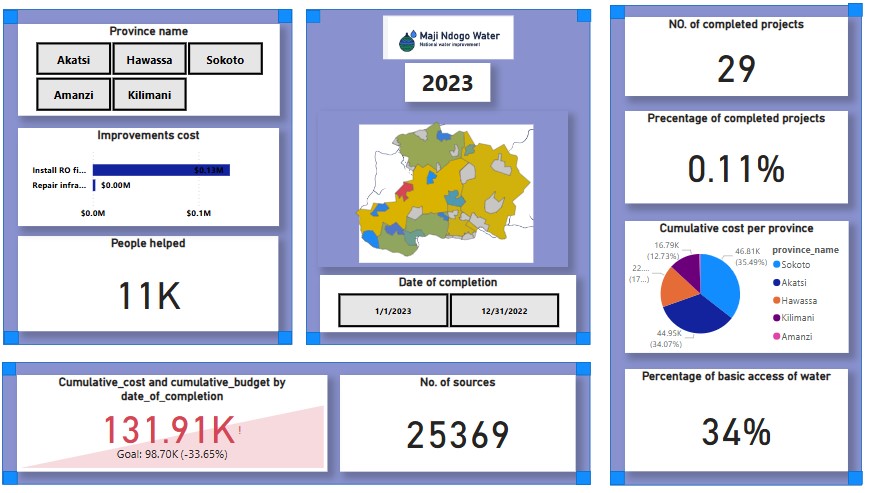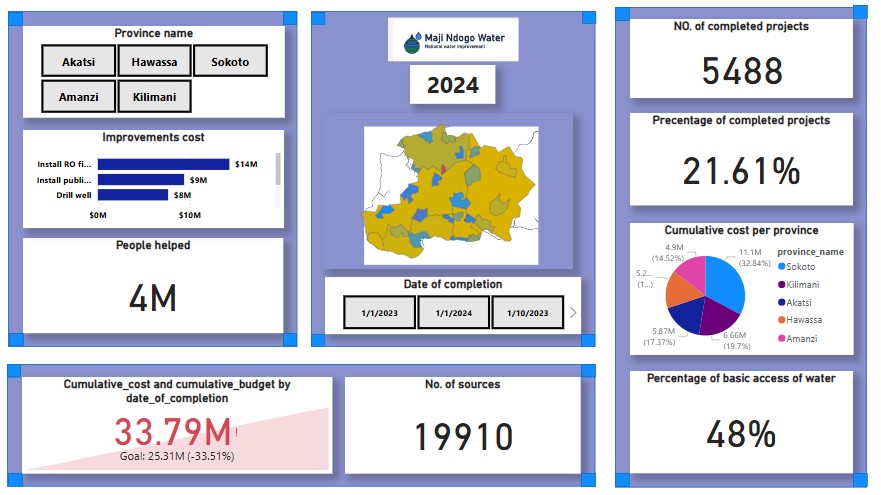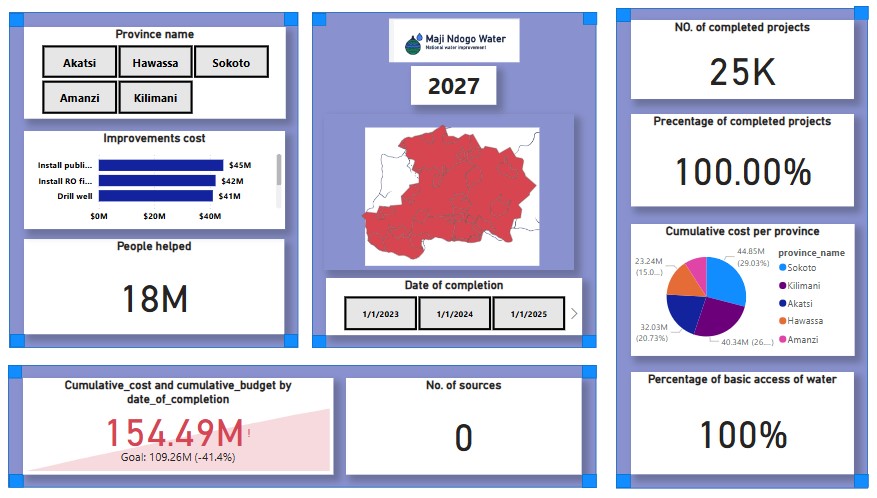This project is committed to addressing the challenges related to water access in Maji Ndogo, a region that includes both rural and urban areas. We employ a data-driven approach to investigate the availability, quality, and distribution of water in the region. Our primary goal is to identify existing disparities and advocate for improved water access and quality across all communities. Check out the visual below to get a quick overview of what this project is all about:
We utilize Power BI as our main analytical tool. This powerful platform enables efficient data cleaning and analysis. Our aim is to leverage the capabilities of Power BI to create clear and compelling visualizations that effectively illustrate the patterns and trends in water access.
Upon completion of the project, we discovered significant disparities in water access between rural and urban areas. Our analysis revealed instances of limited accessibility and compromised water quality in certain regions, highlighting the challenges faced by the Maji Ndogo community.
- Identify Areas of Concern: Determine regions with limited water accessibility or compromised water quality.
- Inform Decision-Making: Provide stakeholders with valuable insights to make informed decisions regarding water infrastructure and resource allocation.
- Advocate for Change: Raise awareness about disparities in water access and advocate for measures to improve the situation, especially in areas facing challenges.
We welcome and appreciate contributions and collaborations to enhance the effectiveness of this assessment. If you have suggestions, identified issues, or wish to contribute to our ongoing efforts, please feel free to submit a pull request or contact me directly.
Through this data-driven exploration, we have provided valuable insights into the water access challenges faced by communities in Maji Ndogo. By advocating for improved policies, we aim to positively impact the lives of individuals in the region, ensuring equitable access to clean and reliable water sources.
Below are the snapshots of the Power BI dashboard for the Impact Progress Reports of 2023, 2024, and 2027, each providing unique insights into Maji Ndogo's transformative initiatives.
Description: Check out the 2023 Impact Progress Report’s visualization. It provides information on project progress, total costs, and basic water access percentages, among other key metrics.
Description: The 2024 Impact Progress Report, providing a comprehensive overview of completed projects, budget allocations, and the ongoing effort to enhance water access in different provinces.
Description: Look ahead with this 2027 Impact Progress Report. Monitor the overall impact, budget use, and the changing scenario of water access as Maji Ndogo progresses.



